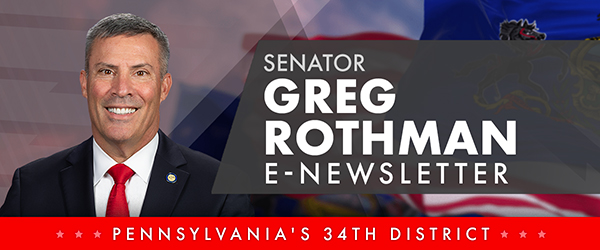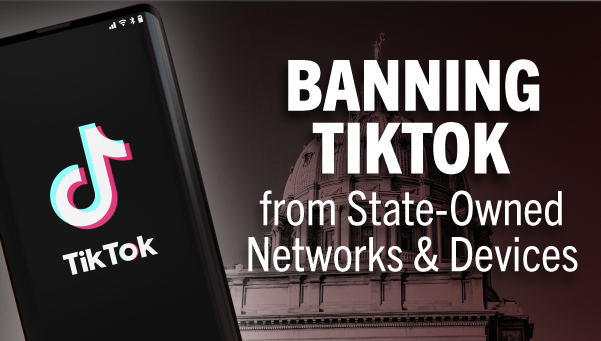
|
||||
|
In this Update:
Creating a Fiscally Responsible State Budget
Gov. Josh Shapiro started the 2023-24 state budget process this week with the introduction of his spending plan, which contains some significant areas of concern. While the governor’s support for Senate Republican priorities such as workforce development, infrastructure advancement, safe communities and mental/behavioral health are appreciated, the plan still boosts state government spending to unsustainable levels. The $45.8 billion plan seeks to boost state spending by more than $1.3 billion above the current year’s budget and would almost completely deplete the state’s Rainy Day Fund by 2028. In addition to the many spending proposals, the budget includes no indication the governor will remove Pennsylvania from the Regional Greenhouse Gas Initiative (RGGI), which will burden all Pennsylvanians with an annual tax on electricity of nearly $670 million. This is just the beginning of the budget process. The Senate Appropriations Committee will begin a series of public hearings on the proposal March 20, after which work will continue to create a final spending plan. I will work with my colleagues to enact a responsible budget that respects taxpayers and funds essential services by the June 30 constitutional deadline. Historic Breast Cancer Screening Bill Unanimously Passes Senate
The Senate unanimously passed Senate Bill 8, a comprehensive breast cancer screening and genetic testing bill. The bill now heads to the House of Representatives for consideration. The bill eliminates out-of-pocket costs associated with BRCA-related genetic testing and counseling, as well as supplemental screening such as breast MRIs and ultrasound for women at high-risk. High-risk conditions covered by the bill include dense breast tissue, a personal or family history of breast cancer, genetic predisposition and prior radiation therapy. The legislation expands on Act 52 of 2020, which required insurers to cover breast MRIs and ultrasounds for women with high-risk factors. Senate Bill 8 is step two, eliminating costs including co-pays, deductibles or co-insurance for those screenings and BRCA-related genetic testing and counseling. Senate Acts to Protect Citizen Data with State Employee TikTok Ban
The Senate approved legislation to shield citizen data from unauthorized access by prohibiting state-owned devices and networks from downloading and using TikTok. The bill now advances to the House of Representatives for consideration. Pennsylvania state government holds sensitive information in the form of birth certificates, driver’s licenses, occupation certificates, taxes and more. Senate Bill 379 would mandate that all state agencies, departments and commissions remove the application from state networks. It would also require that policies are put in place to block application installation, as well as network-based restrictions to prevent its use and access. Across the nation, both Democrats and Republicans have voiced growing concerns about the security and potential manipulation of the popular social media app TikTok. At least 29 states have addressed the risk to government systems posed by TikTok, and Congress prohibited its use across a wide array of federal agencies and departments. Measure Preserving Community Energy Choice Passed by Senate
Legislation ensuring that state residents have options when it comes to fuel availability was approved by the Senate. The bill now heads to the House of Representatives for consideration. Senate Bill 143, known as Energy Choice legislation, would prevent municipal entities from banning a specific type of fuel source for appliances and heating homes or businesses. The measure was developed after cities across the nation took steps to ban fuels, such as natural gas and heating oil, in newly constructed buildings. The legislation is an important component of a sound energy policy for Pennsylvania that’s inclusive of all energy options residents may want or need to access. Senate Approves Legislation to Increase PA National Guard Health Care Providers
The Senate approved legislation that would allow more health professionals to participate in the Medical Officer Health Incentive Program, helping to ease the shortage of medical specialists in the Pennsylvania National Guard. The Medical Officer or Health Officer Incentive Program was created in 2014 to provide a tuition reimbursement incentive to those who qualified through their time in the armed services. Even though the program was successful in attracting health care providers into National Guard service, some health professionals, like dentists and physician assistants, were inadvertently left out of the program. Senate Bill 162, which fixes that oversight, now heads to the state House of Representatives for consideration. Senate Honors 20th Anniversary of Operation Iraqi Freedom
The Senate marked the upcoming 20th anniversary of Operation Iraqi Freedom with a resolution this week. In 2003, the United States and coalition forces began the mission to liberate Iraq from dictator Saddam Hussein and extend freedom and democracy throughout the region. On March 20, 2003, the beginning of Operation Iraqi Freedom was marked with airstrikes on Saddam Hussein’s presidential palace. Operation Iraqi Freedom ended on Dec. 15, 2011. Daylight Saving Time Begins This Weekend
Reminder: Daylight Saving Time begins this Sunday, March 12, at 2 a.m. While cell phone and computer clocks usually change automatically, most people move their standard clocks ahead one hour on Saturday night. It’s also a good time to check smoke alarms and carbon monoxide detectors. If the devices are older than 10 years, experts suggest upgrading to 10-year, sealed battery alarms. They don’t require any battery replacement throughout their lifetime. Regardless, it’s still a good idea to press the test button on the alarms at least once every month.
If you are not already subscribed to this newsletter please sign up here. |
||||
|
||||




Want to change how you receive these emails? 2026 © Senate of Pennsylvania | https://senatorrothman.com | Privacy Policy |







